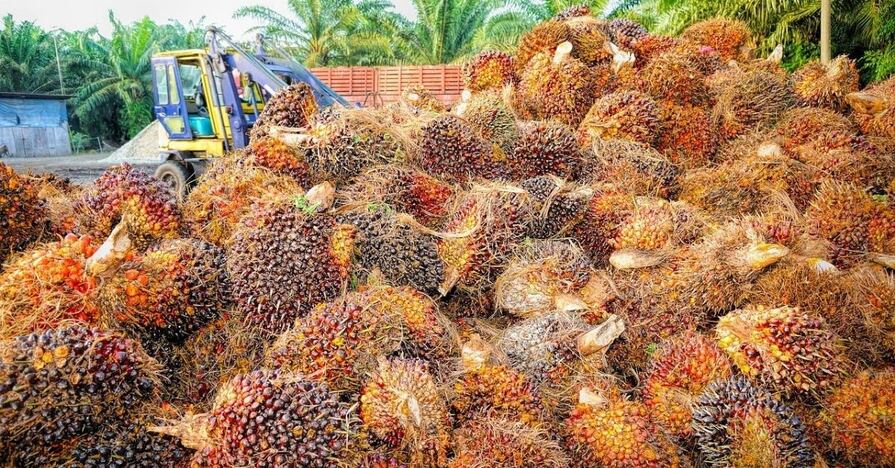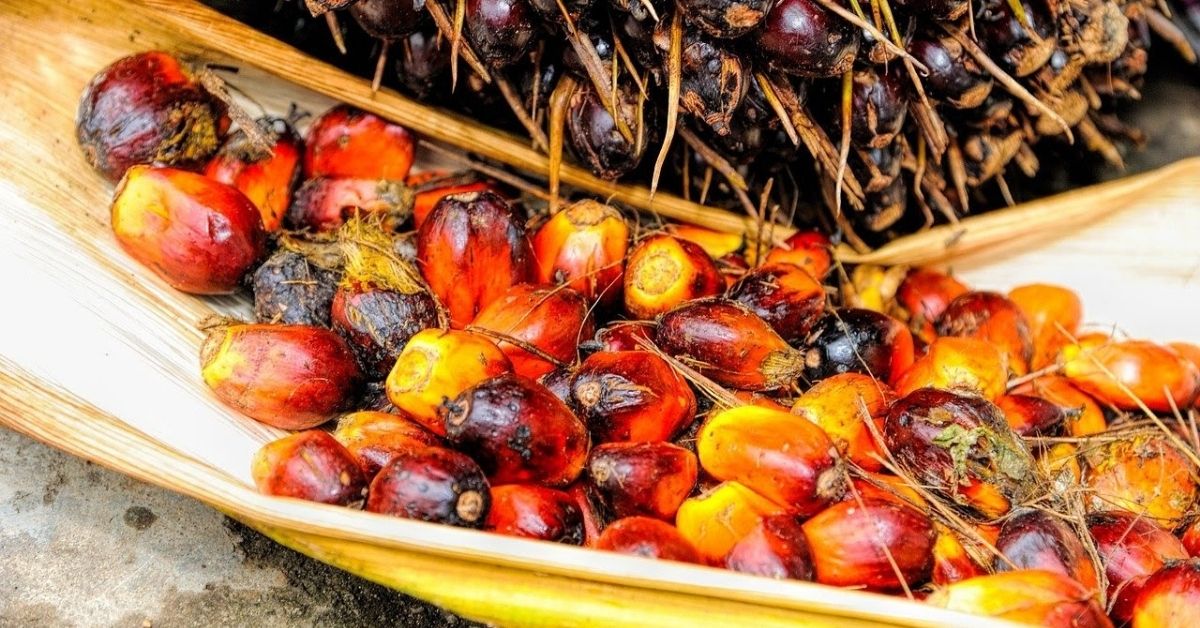#KnowYourPalm: 5 Brands That Use 100% Sustainable Palm Oil in Your Daily-Use Products
It is our responsibility as consumers to only buy products that contain sustainably sourced and produced palm oil. The first step in doing so is to recognise the use of palm oil in your product’s ingredients list. #KnowYourPalm

This article has been published in partnership with RSPO
While shopping for groceries, cosmetics or other daily products, we often flip the box to check the price and the use by date on the back. But how often do we glance over the list of ingredients used and understand the implications?
For most of us, rarely.
Which is why it may come as a surprise to know that most of our routine purchases – from bread to chocolate, ice-cream to lipstick, and soap to toothpaste or even shampoo – contain palm oil, one of the most commonly used and versatile edible oils in the world.
Is that a problem?
Well, not if the palm oil is certified as sustainably produced and sourced.
In some regions oil palm cultivation has historically caused and continues to cause deforestation – which is unacceptable. Land which was once predominantly covered by primary forest (forest untouched by man) or which housed protected species and a high biodiversity has been cleared in order to be converted into palm oil plantations. While the oil palm crop in itself is not unsustainable – it is just a plant – the production practices have exacerbated or created the environmental and social issues we have seen develop in the last few decades. In 2004, in an effort to combat these challenges, the Roundtable on Sustainable Palm Oil (RSPO) was established to promote the sustainable production of palm oil.

Within the context of RSPO – sustainable palm oil is oil palm that’s been grown and produced according to a set of stringent environmental and social criteria, known as RSPO’s Principles and Criteria – P&C for short.
When grown according to RSPO standards, a space is created where oil palm agriculture, the environment, and local communities can co-exist in harmony. RSPO’s standards work to protect primary and secondary forests, ensure the habitats of wildlife are not harmed, and also safeguard workers, communities, and indigenous people in oil palm producing regions.
Another upside to sustainable palm oil, is that oil palms are a very efficient crop that use up to 10 times less land than any other vegetable oil crop.
For instance, a single hectare of land has the capacity to produce at least 4.17 metric tonnes of palm oil a year, as compared to 0.56 metric tons of sunflower oil, 0.39 metric tons of soybean oil and 0.16 metric tons of groundnut oil. For this reason, a book published by Center for International Forestry Research (CIFOR) shows that the production of oil palm only uses 7 per cent of the world’s oil farming land, while making up almost 39 per cent of the total vegetable oil production.
Additionally, owing to its higher production efficiency and cost-effectiveness, it is also a significant source of income and livelihood for millions of small farmers in producing countries.
Mitigating the problems around palm oil production

As part of the #KnowYourPalm initiative, RSPO along with The Better India is taking a conscious step to encourage consumers, businesses and other stakeholders to demand that products only contain Certified Sustainable Palm Oil (CSPO).
It is our responsibility as consumers to only buy products that contain sustainably sourced and produced palm oil.
The first step to do so is to recognise the use of palm oil in your product’s ingredients list.
There are many names for palm oil and its derivatives or fraction, for example; PKO (Palm Kernel Oil), Palmate, PKO fractionations like Palm Kernel Stearin (PKs) or Palm Kernel Olein (PKOo), OPKO (Organic Palm Kernel Oil), Sodium Laureth Sulphate, Palmitate (Vitamin A or Ascorbyl Palmitate) and Sodium Lauryl Sulphates.

If you find any of these names in the list of ingredients, the next step is to enquire if the product has been produced with palm oil that was grown and sourced sustainably.
Several multinational companies have consciously made a commitment towards using sustainable palm oil in all their products. Some prominent companies in India that use sustainable palm oil in their products include Hindustan Unilever, Procter and Gamble (P&G), Ferrero, Mars and The Body Shop.
Their commitments are reflected through various initiatives, including environmentally responsible policies, strategies and product releases.
Here are a few such companies:
Hindustan Unilever (HUL): HUL sells leading brands like Sunsilk, Dove, Knorr, Axe, Lipton and Bru, has been a member of RSPO since May 2004. Today, HUL is making progress towards a sustainable palm oil supply chain through a clear strategy and implementation plan. This is aided by a five-principle model for sustainable palm oil production, which advocates total transparency in the process, and no deforestation or development on peat. Their strategy is to drive a socio-economic transformation for smallholders and women, while also protecting forests and wildlife. Read more
Procter & Gamble (P&G): P&G is committed to zero deforestation in the palm oil supply chain, using innovation to drive positive change. A member of RSPO since 2010, they have already been able to create a sustainable network of supplier mills that produce sustainable palm oil, and have ensured no deforestation exists on their supplier plantations. They are working with several stakeholders, including suppliers, academic experts, NGOs, and industry peers to constantly promote better standards and practices of sustainable palm oil sourcing. Read more
Ferrero: Officially, Ferrero Trading Lux S.A., Ferrero is a family confectionery business founded in 1946 that grew to become a global leader in the industry. Committed to creating quality products that are environmentally guilt-free, they joined RSPO’s mission of sustainable palm oil production and use in 2005. Owing to their persistent efforts, as of 1 January 2015, they were able to produce all their products with palm oil that was 100% certified as sustainable and segregated according to the RSPO supply chain. They managed to accomplish this one year ahead of their original target. In 2013, they also set up the Ferrero Palm Oil Charter, to address the environmental repercussions of irresponsible palm oil production, and create a balance between economic benefit and viability, and environmental conservation. Read more
Mars: In September 2019, Mars launched the Palm Positive Plan, that aims to deliver a 100% deforestation-free palm oil by 2020 and set a positive cycle of change in the area of human rights through a transformation in the supply chain. One of the steps taken was the increased level of verification in the process, which aims to take Mars’ supply chain mill count from 1500 to fewer than 100 by 2021, and further halve by 2022. Read more
The Body Shop has been a member with RSPO since 2010. They only source sustainable palm oil for their products, ensuring no deforestation. Read more
In addition to these, you can either write to other brands or companies enquiring about their palm oil production or sourcing processes, or check those with RSPO here. The World Wildlife Fund (WWF) palm oil scorecard rating tool here, is yet another way to do this as well.
From oil palm producers, traders, consumer goods manufacturers, retailers, banks, investors, NGOs to customers, every single individual is part of this cycle, that if turned in the right direction can help save the planet.
This story made me
- 97
- 121
- 89
- 167
Tell Us More
We bring stories straight from the heart of India, to inspire millions and create a wave of impact. Our positive movement is growing bigger everyday, and we would love for you to join it.
Please contribute whatever you can, every little penny helps our team in bringing you more stories that support dreams and spread hope.



















